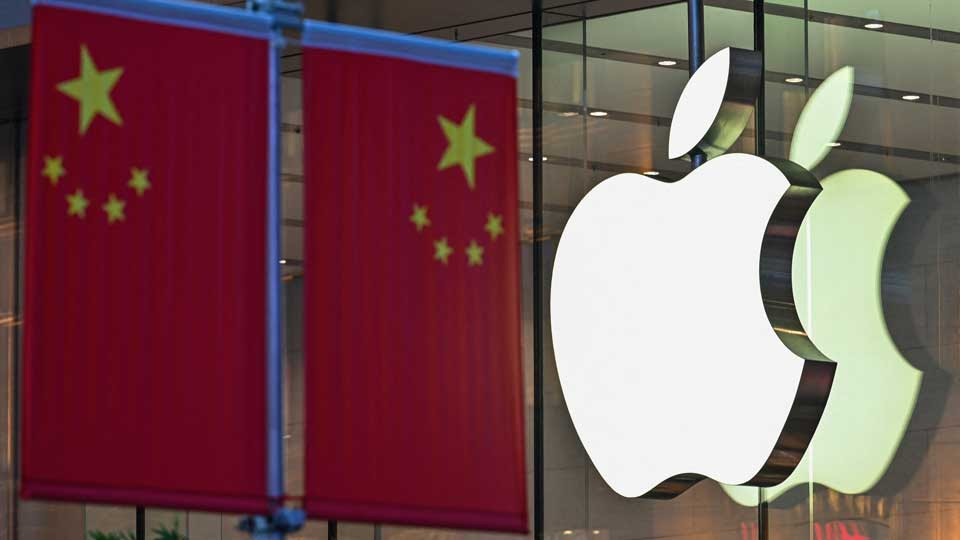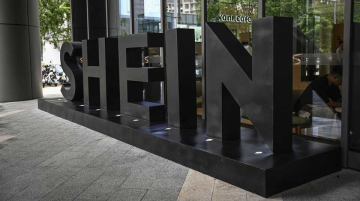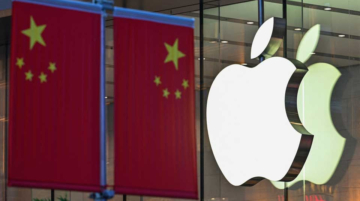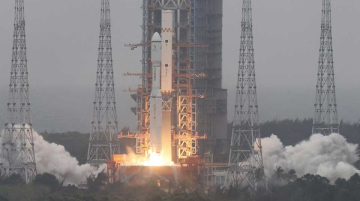
U.S. President Donald Trump dismissed the economic impact of the trade war on U.S. consumers in an interview with ABC News. He said he doesn’t believe that hard times are ahead for the U.S. and that China will likely absorb the impact of the steep trade levies imposed by his administration. “You don’t know whether or not China’s going to eat it. China probably will eat those tariffs,” he said. (BLOOMBERG)
China’s Guangzhou Port, one of its busiest logistics hubs, opened a direct shipping route to the megaport of Chancay in Peru. The route will lower logistics costs and increase trade between China and South America. In addition to Chancay, it will also speed up access to other key ports in the region, including Mexico’s Port of Manzanillo and Chile’s Port of San Antonio. (REUTERS)
Cross-border RMB settlements between China and Southeast Asian countries have reportedly surged to a record in March. UnionPay, a financial services company controlled by the People’s Bank of China, strengthened its services in countries like Vietnam and Cambodia. At the same time, the PBOC’s currency swaps with other countries hit a record in February. The expansion comes as some countries are seeing the dollar as less secure. (REUTERS)
The leaders of Japan and the Philippines pledged in Manila on Tuesday to deepen security ties, including increased intelligence sharing, as they grapple with territorial disputes with China. [AFP]
The leaders of Japan and Vietnam agreed Monday to establish a vice-ministerial-level foreign affairs and defense dialogue framework and work toward defense equipment and technology collaboration as they face China’s increasing military presence. [KYODO]
A Chinese national was arrested while operating a surveillance device near the offices of the Philippine election commission, authorities said Wednesday, less than two weeks before the country’s mid-term polls. [AFP]
Chinese geologists reportedly discovered a large new copper deposit on the Tibetan Plateau. The $20 million ton deposit is estimated to be worth over $100 billion. The discovery could change the global copper trade and upend current calculations around critical minerals. Countries that could be affected include the Democratic Republic of Congo, Chile, Peru, and Zambia. (CHEMANALYST)
The Chinese foreign ministry announced that Indian pilgrims will be allowed to visit holy sites in Tibet for the first time since 2020. The allowance is the latest sign of a thaw in the relationship. Tibet’s Mount Kailash and Lake Manasarovar are important to both Tibetan Buddhism and Hinduism, but pilgrims have been barred from visiting for the last five years due to COVID policies and the tensions following a deadly clash between Indian and Chinese troops at the border. (REUTERS)
A vessel capable of carrying 7,000 cars was recently delivered to the Chinese auto giant BYD and is currently en route to Brazil, its first voyage. The BYD Shenzhen is part of the new energy vehicle giant’s recent $700 million fleet expansion. It now has eight such mega-carriers. Brazil is BYD’s largest overseas market. (BAIRD MARITIME)
Apple plans to shift production of all U.S.-sold iPhones from China to new factories in India in response to Donald Trump’s tariff war. The Cupertino-based company hopes that all 60 million iPhones sold annually in the U.S. will be shipped from India by the end of next year. (FINANCIAL TIMES)
Chinese Foreign Minister Wang Yi met with his counterparts from five Central Asian countries in Almaty, the capital of Kazakhstan, on Saturday. Wang used the event to criticize the U.S. and its “arbitrary tariffs” while also positioning China as a more stable defender of “international fairness and justice.” (XINHUA)
There’s been a major shake-up in the leadership of China’s largest and most powerful mining company, CMOC Group. The company’s chairman, Yuan Honglin, and vice chairman, Li Chaochun, have resigned for “personal reasons,” according to a filing with the Hong Kong Stock Exchange. CMOC Group is the world’s largest cobalt producer with large-scale operations in Asia, Africa, and South America. (BLOOMBERG)







